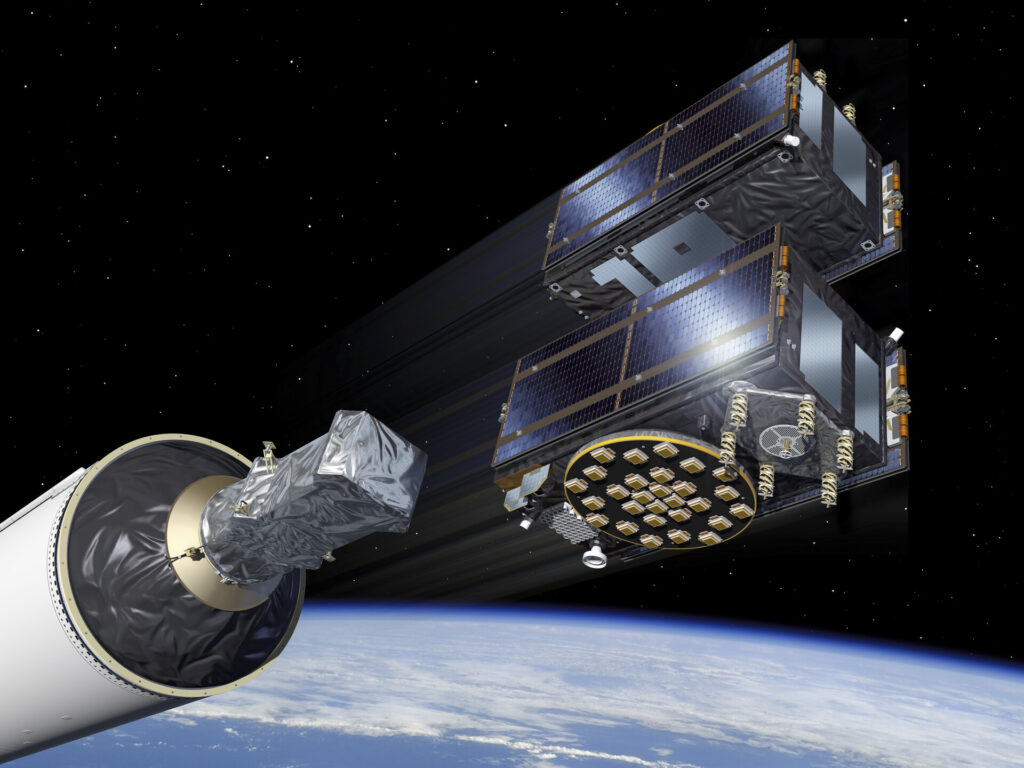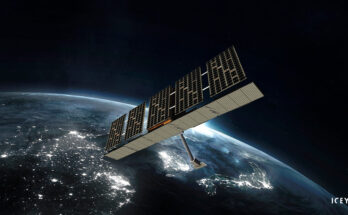
The European Galileo constellation is now two satellites stronger with a Falcon 9 launch on April 28. Galileo is now comprised of 30 satellites with a further eight to launch in the near-term future with Galileo Second Generation satellites likely to begin launching in 2026. The program is one of the major PNT (Positioning, Navigation and Timing) systems in the world which include China’s Beidou, the United States’ GPS and Russia’s GLONASS.
Galileo traces its roots back to 1994, when ESA, the European Commission (EC), and the European Organization for the Safety of Air Navigation (EUROCONTROL) agreed to develop the Global Navigation Satellite System (GNSS-1), better known as EGNOS. Following a mandate from the Council of Ministers of the European Union, the EC took the program a step further to develop a full satellite navigation system, dubbed Galileo. ESA first committed funds to the program in May 1999.
The U.S. was originally opposed to the implementation of Galileo because it could possibly interfere with GPS signals and would take commercial business away from GPS. Despite American pressure, Europe decided to implement the system with an eye on boosting the economy and becoming independent of the U.S. system. Galileo, however, was designed to be compatible with GPS and accommodate future updates to the GPS constellation.
After achieving full operation in 2016, Galileo overcame a hurdle with faulty atomic clocks in 2017 but maintained functionality due to redundancy. The system continued to expand with additional satellites awarded to OHB in 2017. Controversy arose in 2021 when Airbus and Thales secured the contract for next-generation satellites, leading to protests from OHB. The UK’s exit from the EU in 2020 meant their departure from Galileo, and recent reports suggest they might explore using the OneWeb constellation for navigation, although its suitability remains uncertain.
Galileo has similar accuracy and is interoperable with both GPS and GLONASS.
Carter Palmer has long held a keen interest in military matters and aviation. As a FI's space systems analyst he is responsible for updating the reports and analyses within the Space Systems Forecast – Launch Vehicles & Manned Platforms and Space Systems Forecast – Satellites & Spacecraft products.




